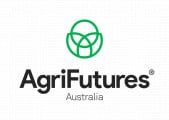AgriFutures Australia

Farmers seeking to develop Soils Carbon Projects based upon the drawdown of CO2e through vigorous plant growth must offset their on-farm emissions arising from power consumption (grid electrical inputs and fuel for machinery and plant), fertiliser applications and ruminant methane prior to gaining Carbon Credits. While cattle, sheep, goats and alpacas are part of the carbon cycle, their methane emissions are accounted for as a detriment to the overall carbon accounting for agriculture. This project aims to investigate and explore the potential for freshwater plants to replicate the effect seen when feeding cattle red seaweed in terms of reduced methane production and improved animal health. It will investigate and explore additional practical options for reducing methane emissions. Once completed this project will have identified the methane-reducing potential of a number of freshwater plant species, identifying those that are readily available, relatively simple to grow and when supplemented to standard grass hay fodder, will reduce enteric methane emissions from cattle.

-crop-850x675.png)
Have questions?
Find answers to our most frequently asked questions on research projects, commercial opportunities, organisations and more.
Still have questions or have feedback on the site? Please get in touch by completing our enquiry form.